MRI angiography of cerebral vessels
In the K+31 clinic, the procedure is performed on the premium-class SIGNA™ Architect AIR™ Edition system. High speed and information content, the best prices for MRI angiography of the cerebral vessels in Moscow are the reasons why patients choose us. Call our clinic at the number listed at the top of the page to get detailed advice and professional recommendations. You can also order a call back - leave your name and phone number on the website, and we will call you back as soon as possible.

specialists

equipment

treatment
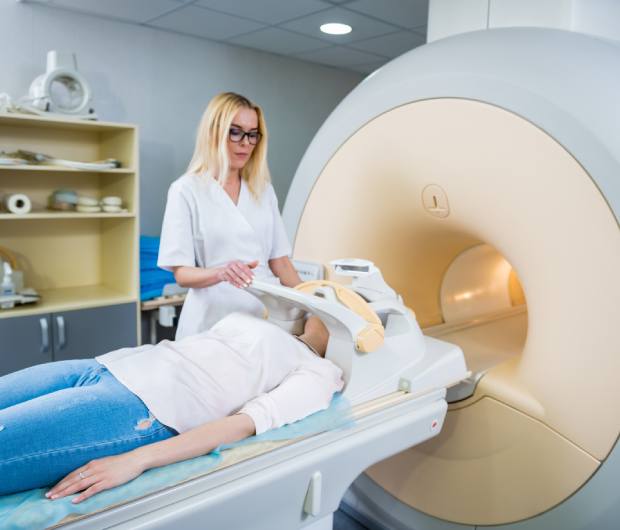
A referral for diagnostics is given by a neurologist after consultation, physical examination and standard examinations (ultrasound, CT of the brain). MRA is used as a clarifying method, it is carried out in the presence of the following indications in patients:
- Chronic and frequent headaches of unknown origin
- Periodically occurring attacks of dizziness, nausea, tinnitus
- Fainting
- Disorders of fine motor skills and coordination of movements
- Deterioration of hearing and vision
- Decreased memory, speed of thinking and ability to concentrate
- Previous head injury
MR angiography of the brain vessels is a study that shows the most detailed information about the anatomical features of blood flow. Such diagnostics are often used in neurosurgery in preparation for surgery and to assess the effectiveness of treatment in the postoperative period.
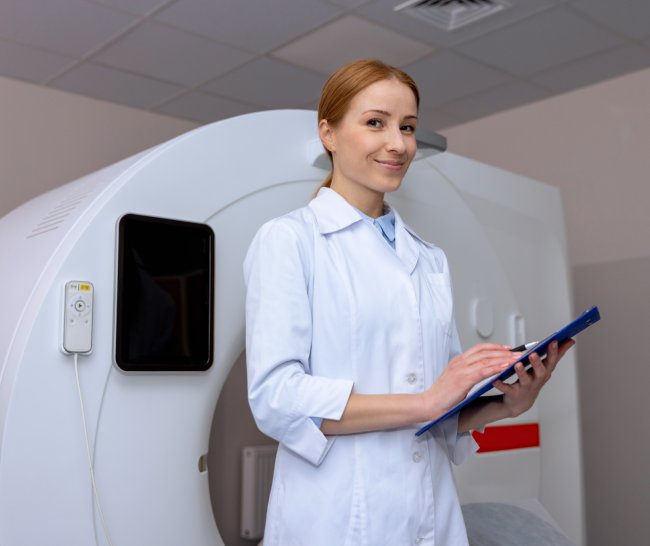
Although magnetic resonance imaging is recognized as one of the safest methods (with a minimum of contraindications), which can be used not only in adults but also in children of different ages, it has a number of limitations. Absolute contraindications, in which diagnostics are strictly prohibited, include:
- Presence of a pacemaker, cardioverter-defibrillator
- Metal prosthetic heart valves
- Steel fixing structures in the bones of the skull, spine and other parts of the body
- Joint prostheses
- Presence of metal fragments remaining in tissues after injuries
- Inner ear implant
- Hemostatic clips on cerebral vessels
Patients can undergo MRI angiography with braces and dental implants without obtaining a certificate from a dentist. Such structures will not interfere with scanning and do not provoke negative consequences of the procedure.
A special group includes relative contraindications to MRI angiography: the first trimester of pregnancy, severe claustrophobia, tattoos on the body, diseases and conditions that make it difficult to remain still during the procedure. If they are present, the study is performed only if it is impossible to assess cerebral blood flow in other ways.
General information about the procedure

This award is given to clinics with the highest ratings according to user ratings, a large number of requests from this site, and in the absence of critical violations.

This award is given to clinics with the highest ratings according to user ratings. It means that the place is known, loved, and definitely worth visiting.

The ProDoctors portal collected 500 thousand reviews, compiled a rating of doctors based on them and awarded the best. We are proud that our doctors are among those awarded.
Make an appointment at a convenient time on the nearest date
Price
Other services







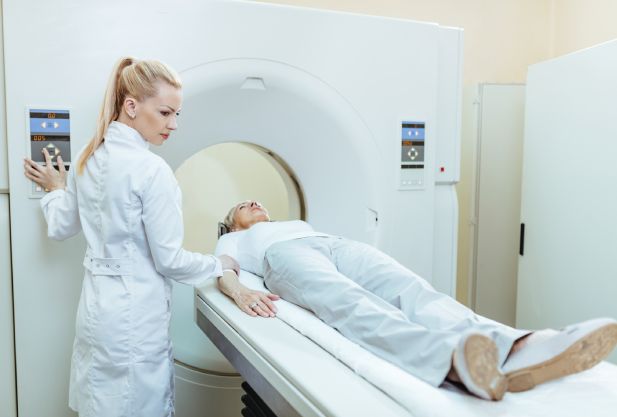

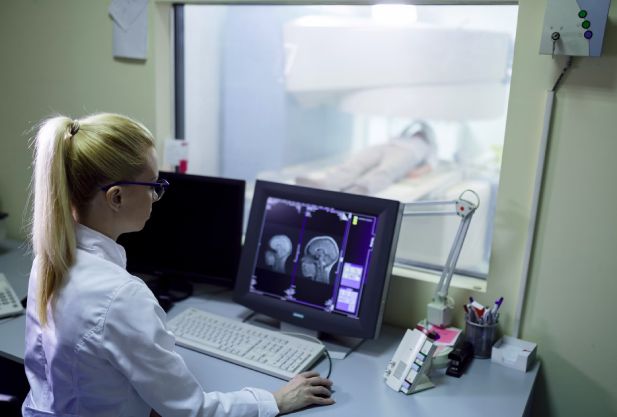




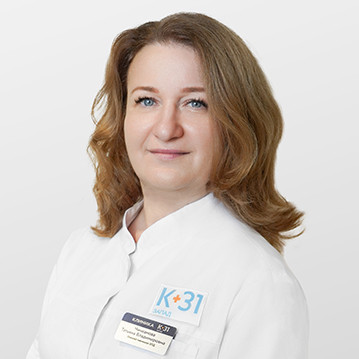


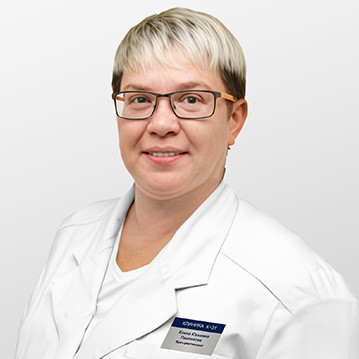
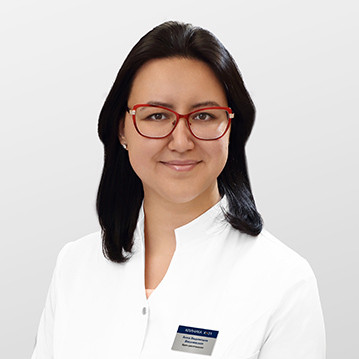





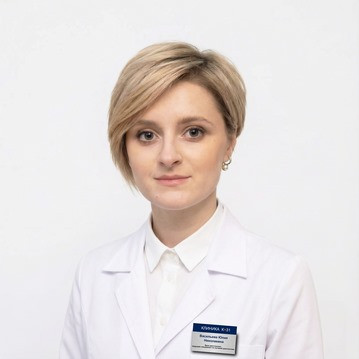



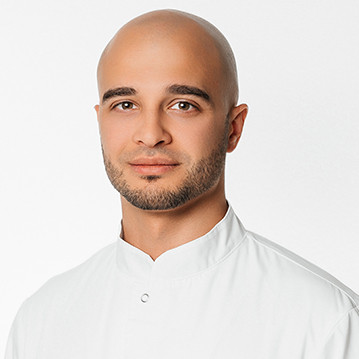




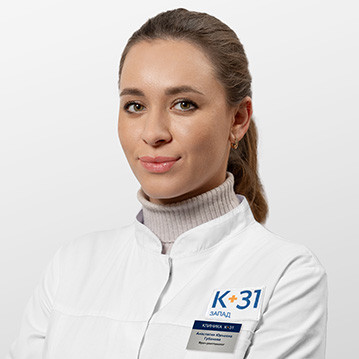








What does MRI angiography show?
The magnetic resonance imaging technique is based on layer-by-layer scanning of the body using electromagnetic waves. When they interact with hydrogen atoms in the body's tissues, resonance appears, which is captured by the device, and a computer program converts it into a three-dimensional image. This is a non-invasive method of examining the vascular bed using a tomograph, which in most cases does not require the introduction of contrast agents.
Data on the size, location and relationships of the vessels provide valuable information to the neurologist.
MRI angiography allows diagnosing the following conditions:
The results of magnetic resonance angiography are used in the diagnosis of diseases of the central nervous system at an early stage, cerebrovascular accidents (transient ischemic attacks, strokes), vascular dementia, multiple sclerosis, craniocerebral injuries, sensory dysfunction, epilepsy, when other methods have proven uninformative. The technique is also used in the comprehensive examination of patients with complicated forms of hypertension, atherosclerosis, diabetes mellitus, as well as for monitoring the condition in dynamics and some other purposes.